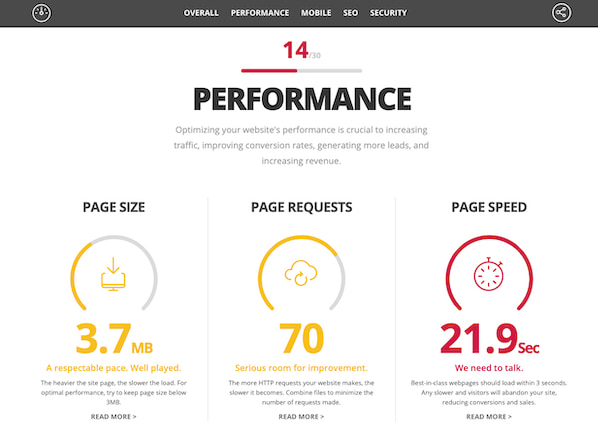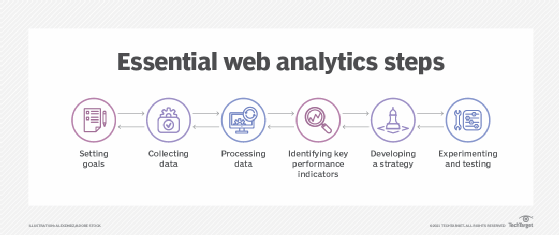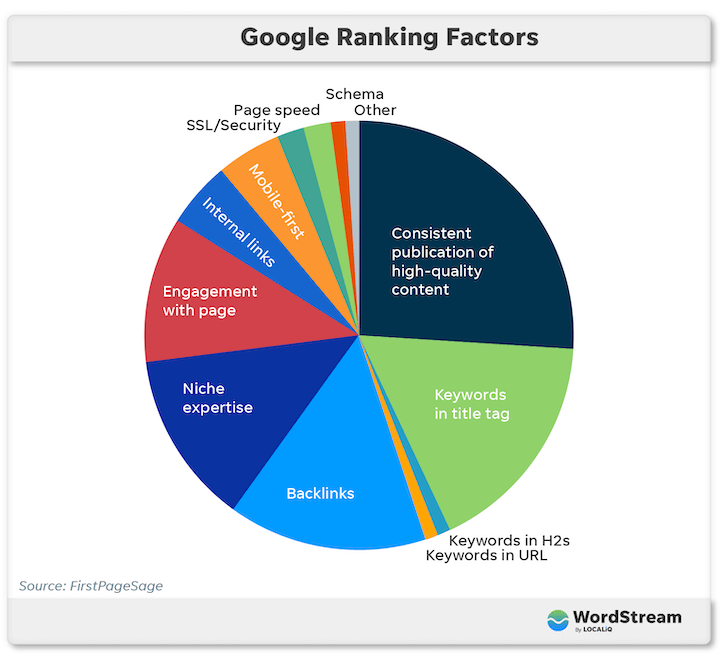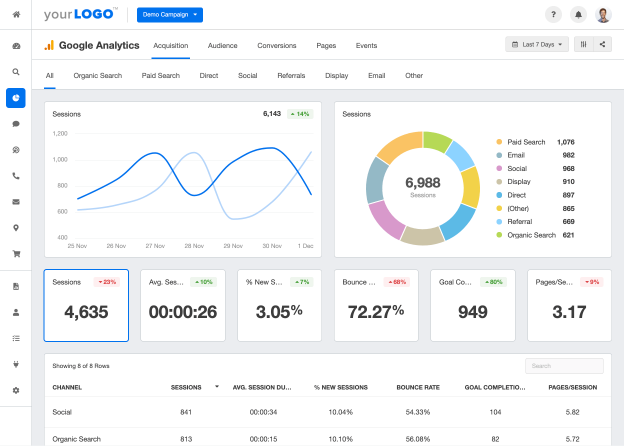
If you’re serious about your web presence, you need to track your website’s SEO performance. SEO performance is an essential part of any digital marketing strategy. It can help you identify areas for improvement, track the success of campaigns, and ensure that your content reaches the right people. But how do you measure website SEO performance?
Measuring website SEO performance involves several elements and metrics that you can track to ensure your website is performing well and getting the most out of its SEO efforts.

These elements include tracking keyword rankings, analyzing backlinks, monitoring site speed, measuring user engagement, and much more. By understanding these metrics and monitoring them over time, you’ll get a better picture of your SEO performance and what changes you might need to make for improvement.
Additionally, various tools will help you measure your website’s SEO performance quickly and easily. In this article, we’ll look at how you can measure your website’s SEO performance and some of the tools and techniques that can help you do it effectively. With the right approach and monitoring, you can ensure your website is always performing at its best and getting the most out of your SEO efforts.
3 Channels to Measure SEO Performance

To ensure your website is performing well in terms of SEO, you need to measure its performance. There are several ways you can do this, each with its advantages and disadvantages.
1. Use web analytics tools.
These can give you detailed information about how people find your site and what they do on it once they arrive. However, they can be complex to set up and interpret, so if you’re not confident using them, it might be best to hire someone who is.

2. Ask your customers or clients how they found out about you.
This can be done either through surveys or simply by asking them in person. It is a quick and easy method but doesn’t give you as much detail as web analytics tools.
3. You can also use search engine rankings as a measure of SEO performance.
This tells you how well your site is doing in terms of getting found by potential customers or clients. However, it’s important to remember that rankings can fluctuate depending on several factors, so they shouldn’t be used as the sole measure of success.

Overall, you can measure SEO performance in several different ways. Which one you choose will depend on your needs and resources.
How To Do a Website SEO Performance Check
There are many ways to measure website SEO performance.
Google Analytics can show how many people find your site through organic search and which keywords they use. Also, your web server logs will show you which URLs are requested and how often. This can give you an idea of which pages are being found by search engines and how popular they are.
You can also measure several factors for an SEO performance check. Here are some key metrics to track:
- Organic traffic: This is the number of visitors coming to your site from organic search results. You can measure this in Google Analytics by tracking the “Sessions” metric under “Acquisition” > “All Traffic.”

- Keyword rankings: Track how your website is ranking for key target keywords using a tool like SEMrush or Moz.
- Backlinks: Check how many backlinks your website has with a tool like Majestic or Moz. The more high-quality backlinks you have, your site will perform better in search results.
- Click-through rate (CTR): This measures how often people who see your listing in search results click through to visit your site. A higher CTR means your listings are more relevant and attractive to searchers. You can measure your CTR in Google Analytics by going to “Acquisition” > “Search Engine Optimization” > “Queries.”
Tools To Measure Website SEO Performance
Assuming you’re looking for website metrics that indicate SEO success, here are a few tools to get you started:
- Google Analytics: This free tool gives you detailed insights into how users interact with your website. You can use it to track factors like pageviews, bounce rate, and average time on site. It also shows you which keywords people use to find your site, which can help optimize your content and check the SEO performance of your website.

- Moz: This paid tool offers a variety of features for tracking SEO performance. In addition to standard metrics like pageviews and keyword rankings, it provides a more in-depth analysis of link building and social media engagement.
- Semrush: This is another paid tool with a similar feature set to Moz. In addition to detailed performance tracking, it also offers some helpful research features that can be used to identify new keywords and opportunities for optimization.
- Webmaster Tools: This free tool allows you to track your site’s performance from Google’s perspective. It will show any errors or issues affecting your SEO performance along with data on how your pages appear in search engine results pages (SERPs).
- Screaming Frog: This is a free tool that can be used to crawl and analyze your website for technical SEO issues. It will identify broken links and other problems that can harm your site’s visibility in search engine results.
- Search Console: This is the official Google tool for monitoring your website’s performance in search results. You can use it to track keyword rankings, impressions, and click-through rates, as well as errors and indexing issues that may be affecting your site’s visibility.
Tips For Improving Website SEO Performance
- Evaluate your website’s current SEO performance. Use a tool like Google’s PageSpeed Insights or WebPageTest to get an idea of where your website currently stands regarding SEO performance.
- Make sure your website is appropriately optimized for all search engines. This includes optimizing your title tags, meta descriptions, and header tags.
- Improve your website’s content. Make sure all of your website’s content is keyword-rich and informative. This will help improve your website’s ranking in the search results pages.
- Increase your website’s backlink profile. One of the most critical factors in SEO performance is the number and quality of backlinks pointing to your website. Try reaching out to other websites in your industry to see if they would be interested in linking to your site.
- Monitor your SEO performance regularly. Use tools like Google Analytics to track how well your website performs in the search results pages over time. This will help you continuously identify any areas that need improvement to optimize your site for better SEO results.
- Consider using an SEO consultant or agency. If you don’t have the time, resources, or expertise to optimize your website properly, consider hiring a professional SEO consultant or agency to help you get the best results.
Wrapping Up
Measuring website SEO performance is essential in optimizing your website for search engine visibility. Understanding what factors are most important to track and measuring those metrics can improve your online presence and get more organic visitors. Whether you use web analytics software or manually measure each metric yourself, it’s essential to keep an eye on how your site’s SEO performance is changing over time so that you can make adjustments as necessary.
By following these tips, you can ensure that your website’s SEO performance is up to par and help your content reach its full potential. By staying on top of SEO performance, you’ll be able to continue improving and growing your web presence over time.
Key Takeaways
- Keep track of your website’s organic traffic using Google Analytics.
- Look for increases or decreases in organic traffic to gauge the effectiveness of your SEO efforts.
- Check your website’s rankings in Google Search Console to see where it stands for important keywords.
- Use other SEO tools to measure specific aspects of your website’s SEO performance, such as link popularity and social media engagement.
- Analyze your competition’s SEO strategies and use them as a benchmark for your performance.
- Monitor changes in the SERPs to see which keywords are driving traffic to your website.
- Track your website’s backlinks and create a strategy for improving link quality over time.

FAQs
Several indicators can be used to measure the SEO performance of a website.
Some common indicators include,
1. The number of organic visitors to the site,
2. The number of backlinks to the site,
3. The average time spent on the site,
4. The bounce rate,
5. The conversion rate
Check the SEO performance of your website every month. However, if you are making changes to your website or blog, you may want to check more frequently.
1. Not tracking all the right metrics
2. Tracking metrics that don’t matter
3. Relying on one metric
4. Not setting goals
There is no one “best” way to measure your website’s SEO performance. Depending on your goals and objectives, the best way to measure them will differ. However, some tips for measuring your website’s SEO performance include
1. Identifying which metrics matter most to your business,
2. Setting goals and benchmarks,
3. Comparing your results against your competitors
You can find more information about measuring your website’s SEO performance by researching online, attending webinars and seminars, or consulting with an SEO expert.
Latest Blogs
Learn how to rank on AI search engines like ChatGPT, Perplexity, and Gemini by optimizing your content for authority, structure, and relevance. Stay ahead in AI-driven search with this strategic guide.
Explore the best healthcare SEO services for your medical practice. Improve online visibility and effectively reach more patients in need of your services.
Discover top social media agencies specializing in banking solutions, enhancing financial services and driving engagement.
Get your hands on the latest news!
Similar Posts

SEO
5 mins read
Top 10 Agencies for Banking and Financial SEO Services Industry

SEO
4 mins read
Top 10 B2B Enterprise SEO Agency Options for Effective Digital Marketing

Artificial Intelligence
5 mins read